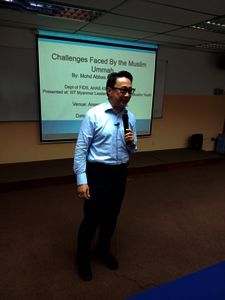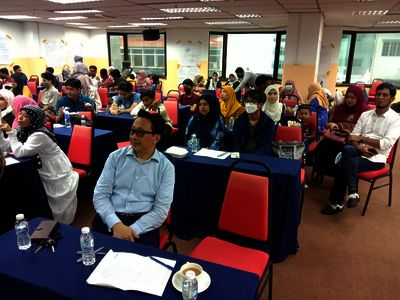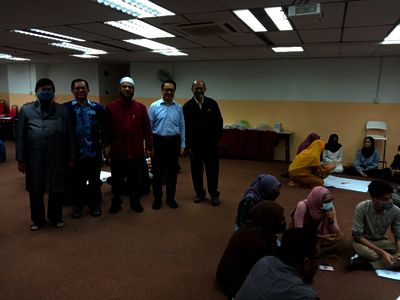Gamon, Alizaman Dumangcag
(2022)
The construction of Muslim youth culture of leadership: its implications to Muslim minority societies in Southeast Asia.
In: Leadership Training for Myanmar Youth in Kuala Lumpur, 14-16/10/2022 (Friday - Sunday), Arenaa Star Hotel, 49, Jalan Hang Lekiu, Kuala Lumpur City Centre,.
(Unpublished)
Abstract
In Muslim minority societies in the Southeast Asian region, Muslim youth leaders have been educated and trained in accordance with the national education system. The concept of leadership and its practices are patterned from the perspective of the dominant culture of leadership in which non-Islamic theories, philosophies, and worldviews are regarded as their backbone. This paper argues that Muslim youth leaders are active and vital agents in the societal transformation and the development of Islamic understandings. This paper aims to understand the sociocultural and religious challenges encountered by Muslim youth with special reference to Myanmar and the Philippines. There is no doubt that the progressive advancement of integration of knowledge in many Islamic universities in the region and beyond has provided new intellectual windows for Muslim youth leaders to redefine their identity to understand what appropriate course of action is needed for a meaningful societal transformation and leadership amid globalized world which is interwoven with the Western and non-Islamic culture that has caused many Muslim youth leaders to experience a loss of identity. It is the purpose of this paper to explore how Muslim youth leaders’ personality is developed as a result of the accumulated experiences and knowledge shaped by a meaningful interaction between cultures and religious beliefs or worldviews. The study focuses on the effect of tawhidic perspective of leadership on Muslim youth leaders’ methodology and approaches in responding to contemporary issues on leadership. This research adopts a qualitative method in answering research questions and objectives. The framework will be based on contemporary works on the concept of Islamic leadership and its relevance to Muslim minorities. Preliminary observations have indicated that due to flawed interpretations of the concept of Islamic leadership, Western theories of leadership have been regarded by many, particularly the secular-oriented Muslim youth leaders as practical solutions to the modern problem of leadership. The study suggests that the present malaise in Muslim leadership can be appropriately addressed by returning to a correct understanding of the principles of leadership as espoused by the Qur’an and Sunnah and its relevance in today’s world. Therefore, the study will showcase a positive relationship between religion and spirituality, and identity and their role in the formation and development of Muslim leadership amid the era of religious and cultural pluralism.
Actions (login required)
 |
View Item |
![[img]](http://irep.iium.edu.my/101090/4.hassmallThumbnailVersion/2022-11-02%2011.35.33.jpg)
![[img]](http://irep.iium.edu.my/101090/5.hassmallThumbnailVersion/2022-11-02%2011.35.12.jpg)
![[img]](http://irep.iium.edu.my/101090/6.hassmallThumbnailVersion/2022-11-02%2011.35.49.jpg)





 Download Statistics
Download Statistics Download Statistics
Download Statistics